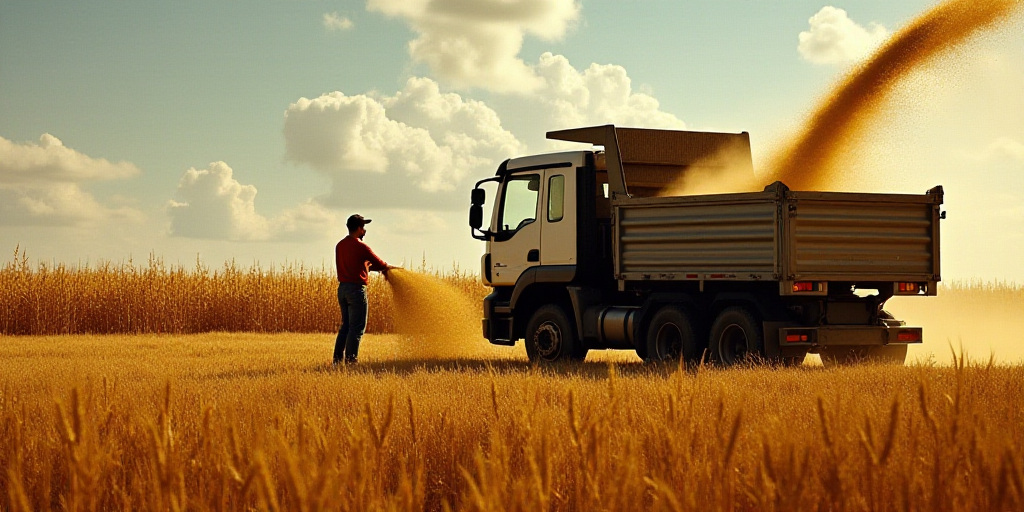Background on Key Figures and Relevance
Chicago’s corn and soybean futures experienced a decline on Friday due to favorable weather conditions across much of the Midwest and profit-taking by traders as the weekend approached, according to analysts. This article provides context on the significance of these agricultural commodities, their recent price movements, and the factors influencing them.
Key Market Movements
- Corn: The July Chicago Board of Trade (CBOT) corn futures fell by 4.25 cents to $4.2925 per bushel, marking the lowest point for the most active contract since December 5.
- Soybean: The July soybean contract reached a five-and-a-half-week high before retreating due to profit-taking following four consecutive sessions of gains. The contract dropped 5.75 cents to $10.69 per bushel.
- Wheat: The July CBOT wheat futures also declined due to profit-taking after strong gains earlier in the week and as the acceleration of winter wheat harvest in the United States increased supply.
Weather Conditions and Their Impact
Traders focused on the favorable weather conditions for crops in the Midwest’s agricultural belt, as warm temperatures are expected throughout the region following last week’s rainfall, meteorologists reported.
“For the most part, the weather remains non-threatening,” said Don Roose, president of U.S. Commodities.
The recent rains have increased soil moisture reserves, and the drought has eased in the Midwest over the past two weeks, according to the latest U.S. Drought Monitor data released on Thursday.
Implications for Farmers and Consumers
Favorable weather conditions generally lead to increased crop production potential, which can result in lower commodity prices. This benefits farmers by reducing their input costs but may lead to lower food prices for consumers in the long run. However, profit-taking by traders can cause short-term volatility in futures markets.
Key Questions and Answers
- What are corn and soybean futures? Corn and soybean futures are financial contracts that allow producers and consumers to lock in prices for future delivery of these agricultural commodities, providing protection against price volatility.
- Why did corn and soybean futures fall? The decline in corn and soybean futures was primarily due to favorable weather conditions in the Midwest, which boosted crop production potential, and profit-taking by traders as the weekend approached.
- How does weather impact agricultural commodity prices? Favorable weather conditions typically increase crop production potential, which can lead to lower commodity prices. Conversely, unfavorable weather can negatively affect crop yields and drive prices higher.
- What is profit-taking in trading? Profit-taking refers to traders selling their assets after they have experienced significant gains, locking in profits and reducing exposure to further market fluctuations.






